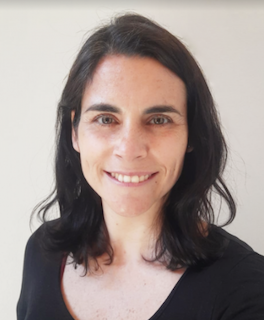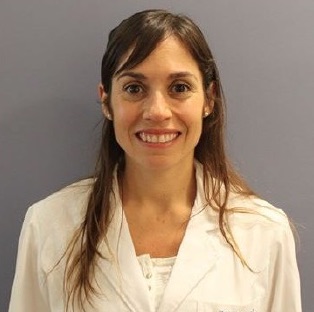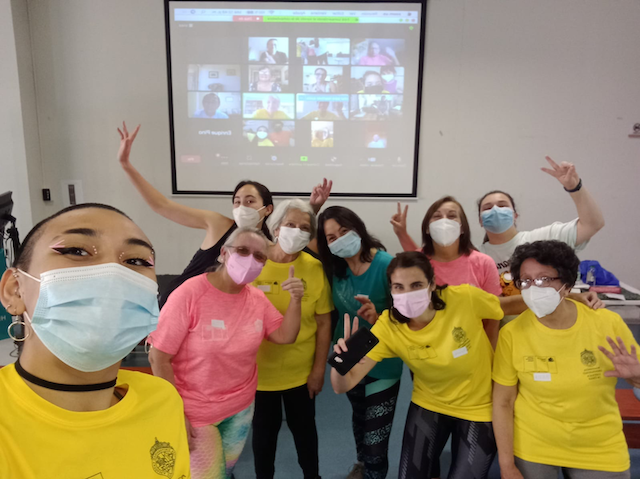
Health promotion, telehealth and optimizing environmental resources in the elderly community across Chile
🇬🇧 For the original Spanish version of this entry please follow this link.
Introduction: Physiotherapy at Pontificia Universidad Católica de Chile
The Physiotherapy program at the Pontificia Universidad Católica is part of the Department of Health Sciences of the School of Medicine. The physiotherapy program lasts ten semesters (5 years) and considers general training modules, minimum disciplinary courses and advanced electives. In the last year, students carry out their professional practice corresponding to 7 rotations of 6 weeks, in different clinical fields and areas of the discipline. The training includes knowledge in approaching people throughout the life cycle in cardiorespiratory, neurology, musculoskeletal, public health, health promotion, etc. During the degree, students can participate in extra-curricular activities. These activities aim to develop students’ cognitive, procedural and attitudinal skills through experiences where they get linked to the environment. Students from the 1st to 5th years work together and collaboratively to promote intergenerational relationships.
Camina60+: “The goal is your health”
In 2017 the Pontificia Universidad Católica created the Camina60+ project (“Walk 60+”) as an initiative to celebrate the elderly day with an annual walk. As a result of the covid-19 pandemic, the Physiotherapy program joins the project Camina60 + by developing videos to promote exercise in older adults online.
In the year 2021, faced with the development of tele-rehabilitation and the need to encourage physical activity in older adults, the initiative grew to hold free weekly online workshops for people over 60 years of age from all parts of Chile that are part of the Camina 60+ community.
This modality responds to the need to promote physical activity in older adults throughout the country, optimising technological and space resources and allowing more older adults to recover and improve their physical capacity, enjoy walking as a recreation and transport activity, and take care of the environment.
Volunteer physiotherapy students (from 1st to 5th year) participated in these workshops, and teachers from the program help the students develop and assess the activities correctly. These workshops also had the participation of Universidad Católica Sports and the UC Senior Adult Program, led by Julia Martínez, Founder of Camina 60+, journalist and senior athlete.
Learning objectives
- Demonstrate ability to guide group activities.
- Develop the ability to communicate effectively in the guided group
- Demonstrate leadership and teamwork skills.
- Apply a physical exercise program focused on promotion through telehealth.
- Demonstrate group assessment and feedback skills
- Develop attributes of professionalism such as responsibility, empathy, respect, excellence, and commitment.
Impact on sustainability and the environment of these workshops
- Promote a healthy life and well-being in the elderly.
- Encourage exercise and walking as physical activities incorporated into the daily routine for active and safe transportation.
- Geographically connect people from different places in Chile, different contexts, and socioeconomic levels.
- Incorporate a methodology that allows optimizing the time, resources and transfers of users.
- Promote the digitization of the elderly, allowing the use of technologies for inclusion.

Fernanda Calvo (MSc)
Professor, Department of Health Sciences, Pontificia Universidad Católica de Chile
Mrs. Fernanda Calvo is a Physiotherapist and Professor at the Department of Health Sciences, Pontificia Universidad Católica de Chile. Responsible for activities linking physiotherapy with the environment. Coordinates the online workshops Camina60+ project, promoting exercise via online methodology in elderly people.

Magdalena Chamorro (MSc)
Assistant teaching professor, Department of Health Sciences, Pontificia Universidad Católica de Chile
Mrs. Magdalena Chamorro is a Physiotherapist and Assistant teaching professor at the Department of Health Sciences, Pontificia Universidad Católica de Chile. With clinical and teaching experience in the area of cardiorespiratory physiotherapy and cardiovascular rehabilitation. Responsible for the coordination of international affairs in the Physiotherapy program.
Work methodology
Preparation: Students and teachers prepared the exercise material before carrying them out. The design of the workshop included an initial assessment, exercise prescription, re-assessment, and special considerations to be considered for each remote session.
Implementation: students in pairs or trios conducted the exercise workshops through the zoom application. Each group was in charge of 10 older adults, and three groups were working in parallel. Each session lasted one hour. Physical exercise workshops were held once a week from March to December 2021.
Final closure: At the end of the workshop, there was an instance of debriefing and feedback among the students, promoting agreements and team learning.
Activity results
Fifteen students participated in the workshops: three were first-year students, seven third-year students, four fourth-year students and one fifth-year student. In total, 33 workshops were held with 30 people each day (with a maximum of 50). Most of the participants came from different places of Santiago de Chile (70%) and 30% from regions. Here is a map of Chile with the different places from where the participants connected:

Experiences reported by students and teachers
At the end of the workshops, the students responded to an anonymous survey about the perception of their participation. The primary skills developed that they perceived were: social commitment (100%), interpersonal communication (88.9%) and teamwork (88.9%).

Among the comments of the students, the following stand out:
“I could use the tools learned in class and develop my social skills in a trusting and safe environment.”
“It allowed us to create tools to face the different situations we lived in the pandemic. Also, we learned to modify our language and activities depending on the type of people we face”
“Very good to see older adults and break paradigms”

March 2022 workshop group
“I learned a lot of soft skills that are difficult to develop in the classroom, it helped to lower the contents to something more tangible and not just theoretical, so it was a tremendous contribution to me for the future”
The comments highlighted that the activity allowed students to practice the theoretical knowledge developed in classes, communication skills, and adaptability to the environment. They also mentioned the importance of the intergenerational relationship with users, where students were able to confront and break with prejudices and stereotypes towards older people. This is in line with WHO recommendations for intergenerational work to address ageism.
The teacher in charge of the activity, Mrs. Fernanda Calvo (physiotherapist), highlights the active and collaborative learning of the students throughout the year, “developing these workshops has been two-way learning between students and the elderly. We had to learn to deliver instructions with simple language, create challenging and entertaining exercises with elements from home, optimize resources, and learn to organize workgroups for both students and the elderly to deliver appropriate feedback “.
One element that stands out is the intergenerational relationship between students. Students from more advanced years of the degree teach students who are just starting, forming a bond of mutual support. The moment of reflection at the end of each workshop was crucial, where we analyzed positive elements and those that have to be improved”.
Some of the elements to be improved are the ability to reach more regions of Chile and promoting walking groups near their homes. Internally, it has become necessary to create a participation certificate as an element that favors the curriculum of the participating students.
Plans: the year 2022
This year, 2022, the workshops began to be held in March both online and in person, allowing users who live near the campus to attend and those far away to connect online. In this way, students can develop their face-to-face management skills and their adaptation to the telehealth format for the promotion of exercise in the elderly. This year we will include educating talks about the importance of staying active, encouraging users to create walking groups near their homes and to be able to perform outdoor physical activity in their environment.
Ponte en contacto / Get in touch
🇨🇱 Nos encantaría saber de usted y continuar la conversación sobre nuestra iniciativa de enseñanza de la promoción de la salud. Si tiene algún comentario, pregunta o idea que quiera compartir con nosotros, póngase en contacto con Magdalena Chamorro (MSc) por correo electrónico o utilice el formulario de comentarios que aparece a continuación.
🇬🇧 We would love to hear from you and continue the conversation about our Health promotion teaching initiative. If you have any feedback, questions or ideas that you would like to share with us, please contact Magdalena Chamorro (MSc) via email or use the comment form below.

0 Comments